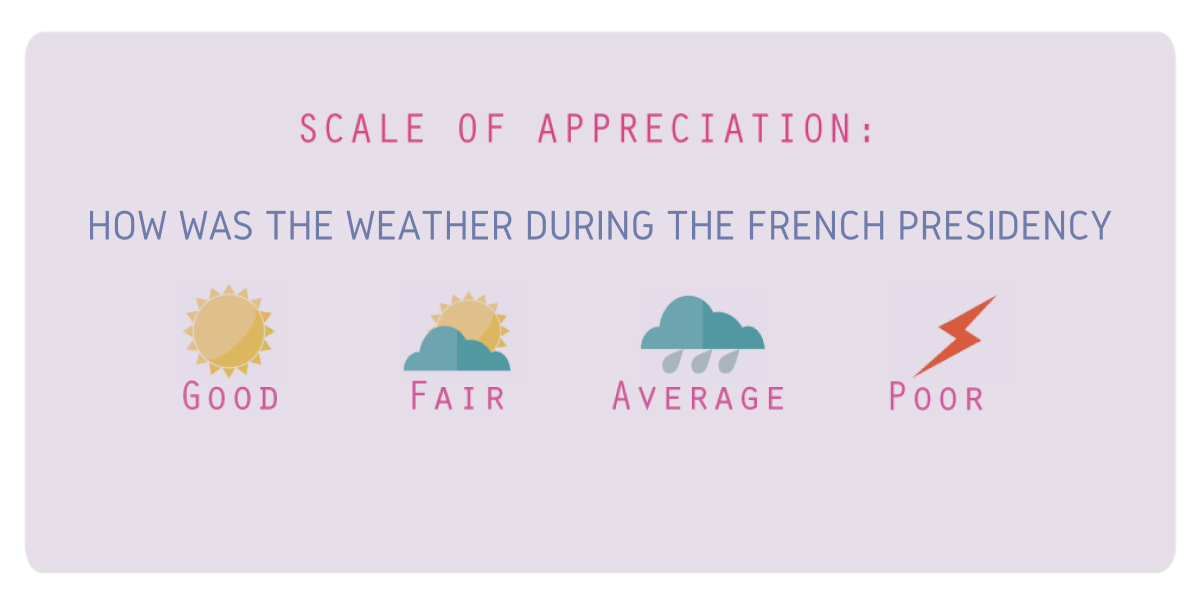MHE Publishes Czech EU Presidency Scorecard (July-December 2022)

Mental Health & Human Rights
To engage with and analyse the performance of the rotating Presidency of the Council of the European Union (EU), Mental Health Europe has devised a scorecard system through which we evaluate each Presidency’s commitment to and promotion of mental health. The performance of each Presidency is rated based on the following criteria:
- Promotion of mental health and well-being;
- Commitment to the rights of persons with psychosocial disabilities;
- The involvement and empowerment of users of mental health services.
Introduction
Similar to previous Presidencies, the Czech Presidency focused its priorities on five main areas: managing the refugee crisis and Ukraine’s post-war recovery, energy security, strengthening Europe’s defence capabilities and cyberspace security, strategic resilience of the European economy, and resilience of democratic institutions. These priorities were developed in cooperation with all EU institutions as well as the previous French Presidency and the upcoming Swedish Presidency.
Promotion of mental health and well-being (AVERAGE)
The Czech Presidency did not have mental health among one of the focus areas for its mandate. Its health-related work areas were: oncology, rare diseases, vaccination, international cooperation, European Health Data Space, and better protection for donors and recipients. Given the increasing interest in mental health policies and considering the work started by the French Presidency, it was a missed opportunity not to have mental health formally included among the areas of work for this Presidency.
The Czech government did however allow to organise under its auspices the High-Level Conference titled Resilient Mental Health in the European Union. This event took place on the 14th of November and, while it was not an official event in the programme of the Presidency, it was hosted by the Czech Permanent Representations in Brussels. MHE was invited to attend and took the opportunity to stress that it is important to recognise that mental health is not an issue confined to the brain and that a person-centred and human-rights based approach is need to move away from outdated biomedical models.
In collaboration with the European Parliament and the European Commission, the Czech Presidency organised the conference Claim the Future as the closing event for the European Year of Youth. The conference addressed mental health in two thematic sessions: one on access to mental health care and one on mainstreaming mental health care.
In November, the Council conclusions on supporting well-being in digital education were adopted. They recognised mental health as one of the “key components of school success” and gave recommendations to Member States and the European Commission on how to integrate well-being into policies and strategies on digital education. For instance, the Conclusions invite Member States to “promote the designing of teaching and learning processes with a view to their impact on learners’ well-being” and to “promote well-being in digital education at the primary, secondary and VET levels.”
Commitment to the rights of persons with psychosocial disabilities (GOOD)
One of the key areas that the Czech Presidency set to advance in the area of social inclusion was the integration of persons with disabilities in the labour market. For this reason, a two-day conference on the topic was organised in Prague on the 20th and 21st of September. The event was used as an opportunity to launch the Disability Employment Package as well as to gather different stakeholders in the field to discuss barriers and solutions for the inclusion of persons with disabilities in employment. MHE was invited as a speaker to present concrete and successful practices to support people with psychosocial disabilities to get and retain employment.
The outcomes of the conference were used to feed into the Council Conclusions on the inclusion of persons with disabilities in the labour market, which were adopted in December. The Conclusions give specific guidelines for action to EU Member States, the European Commission and relevant Committees within the Council of the EU. In particular, they recommend fostering cooperation among national stakeholders, including employment services, organisations of persons with disabilities, health and social services. They also invite EU Member States to ensure that health and safety measures at work take the necessary preventative steps to ensure that persons with disabilities remain in employment.
The involvement and empowerment of users of mental health services (GOOD)
Users of mental health services and expert by experience were invited as speakers to the High-Level Conference on Resilient Mental Health in the EU organised under the auspices of this Presidency, as well as to the conference closing the European Year of Youth and the Conference on the integration of persons with disabilities in employment. Overall, the Czech Presidency made sure to involve users and persons with lived experiences in relevant events.
Conclusion
Despite not having mental health as a key priority, the Czech Presidency mainstreamed the topic in some of its activities. Disability was also one of the key work areas within the social inclusion portfolio. This allowed stakeholders to come together and discuss existing barriers for persons with disabilities in employment. It also gave the possibility to broaden the reach of the Disability Employment Package launch and reach actors outside the disability field.
Stay connected
Get our latest news, personal stories, research articles, and job opportunities.

